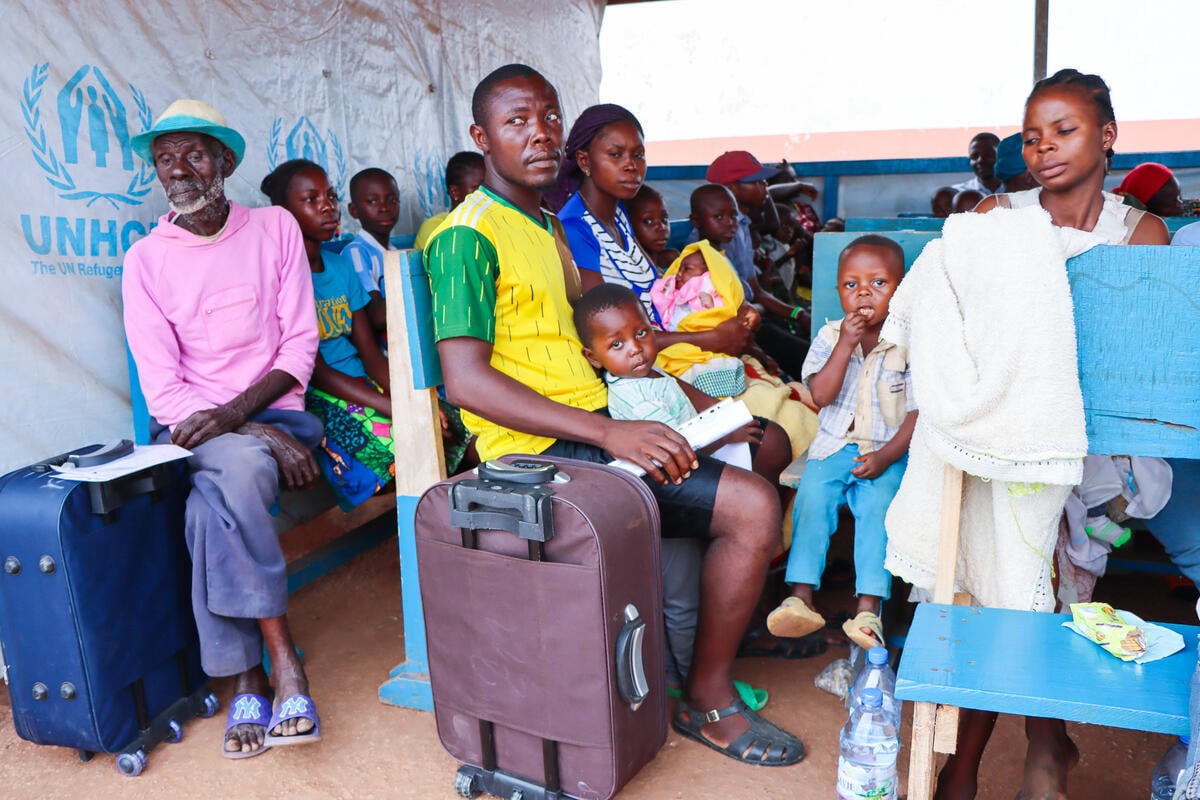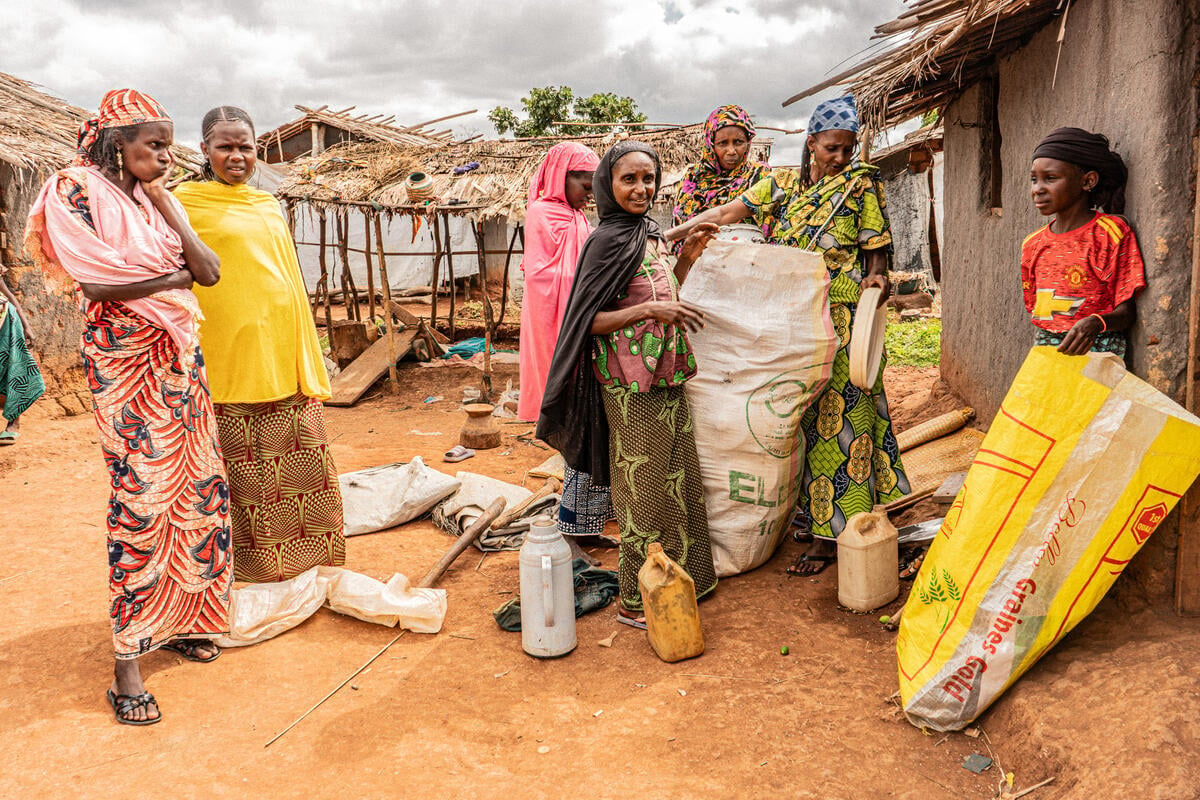Central African Republic: Long-stay Chadian refugees to return home
Central African Republic: Long-stay Chadian refugees to return home
The first of more than 1,500 Chadian refugees who have spent the past two decades in exile in the Central African Republic (CAR) are scheduled to return to their homeland today in a UNHCR repatriation operation expected to be completed by early October.
A UNHCR convoy carrying 321 Chadian returnees is expected to arrive this afternoon in the southern Chad town of Goré after a two-day journey from strife-torn northern CAR. They are part of a group of 1,542 Chadians who have been refugees in CAR since the early 1980s after fleeing civil war in Chad. Continuing insecurity in northern CAR has finally prompted them to go home. Thousands of CAR citizens have also fled the region in recent months seeking refuge in neighbouring Chad.
The repatriation operation is being carried out in cooperation with the governments of the Central African Republic and Chad. The first convoy, which left Boubou camp, 260 km north of Bangui yesterday, is expected to cross the border into Chad around 1:30 p.m. local time today. The returnees, who are being accompanied by UNHCR staff throughout the journey, spent last night at a transit centre set up in a school in the CAR town of Bossangoa. MSF-Spain, which has done medical screening of the group, is providing a nurse to travel with the convoy. The CNR (Commission Nationale pour les réfugiés - CAR governmental refugee agency) is also providing a nurse. Food has been distributed to the refugees for the trip.
The eight-truck convoy is travelling by a main road through northern CAR and is being escorted by CAR soldiers to the border. The returnees will cross into Chad at the village of Bekoniga, where they will be met by UNHCR Chad staff as well as government officials and representatives of CNAR (Commission Nationale d'Accueil et de Réinsertion des Réfugiés). Chadian gendarmes will accompany the convoy on the final leg of the journey to a transit centre in Amboko refugee camp near the Chadian town of Goré. They are expected to arrive at the camp around 3:30 p.m. local time. They will receive food and assistance at Amboko, where they will spend the night.
The first returnees are all from the areas of Goré, Moundou and Koumra - the three main towns in southern Chad. On Wednesday and Thursday, UNHCR will accompany the returnees to their home villages in the three localities.
Three or four additional convoys will follow over the next few weeks and the repatriation movement should be completed by the beginning of October. Some of the refugees yet to be repatriated are originally from N'Djamena and will have to be transported to the capital.
In the past weeks, UNHCR has tripled its staff in Goré to deal with the repatriation operation as well as to respond to new influxes of CAR refugees who have been crossing into southern Chad since June.
From 1999 to 2001, UNHCR helped repatriate thousands of Chadian refugees. Those going back now had decided not to take part in that earlier repatriation operation and to remain in CAR, where they have been self-sustaining. However, with the growing insecurity in northern CAR since the end of 2004, this last group approached UNHCR to organise their return to Chad. Many of the refugees reported attacks by bandits who stole their cattle and prevented them from working in their fields.
Altogether, there are some 14,000 refugees in camps and urban areas in CAR. They come primarily from the Democratic Republic of the Congo, Sudan, Uganda, Congo Brazzaville, Rwanda, Burundi, and Sierra Leone. UNHCR is currently doing a new registration of some of those groups in preparation for possible repatriations in coming months.
Aside from the returnees, there are an estimated 40,000 to 45,000 CAR refugees in southern Chad - at least 10,000 of whom have fled the violence in northern CAR since June. There are another 200,000 refugees from Sudan's Darfur region in eastern Chad.









